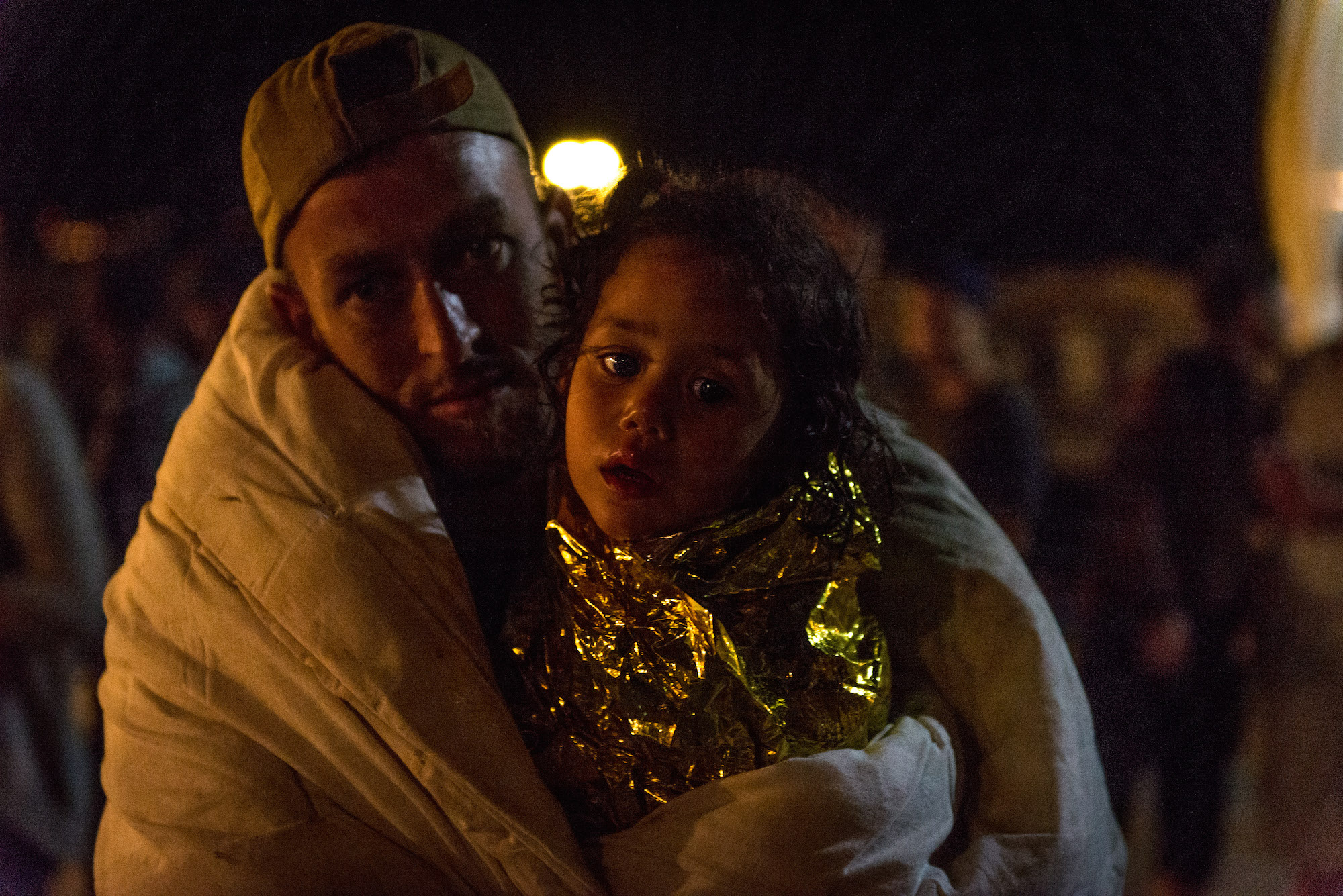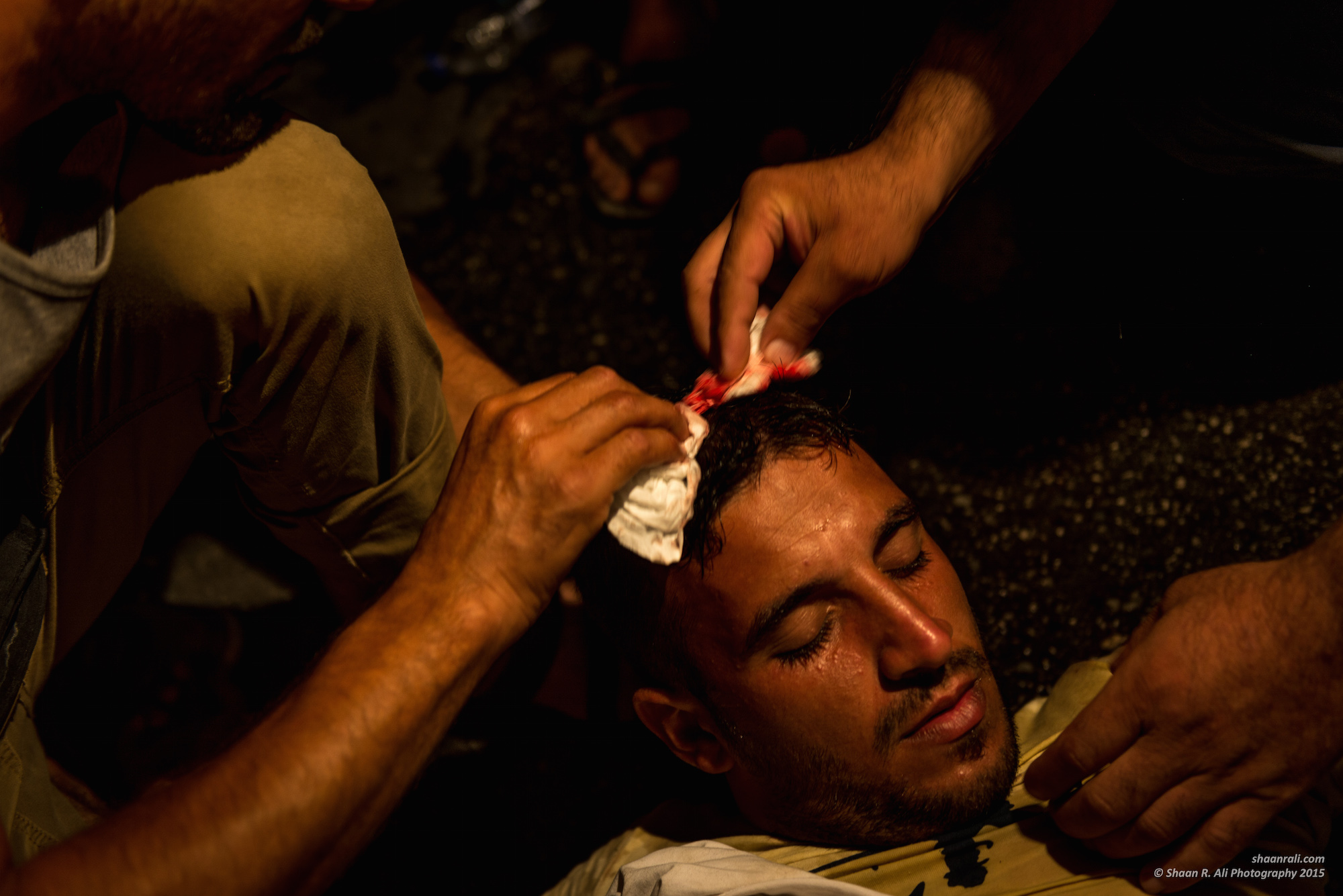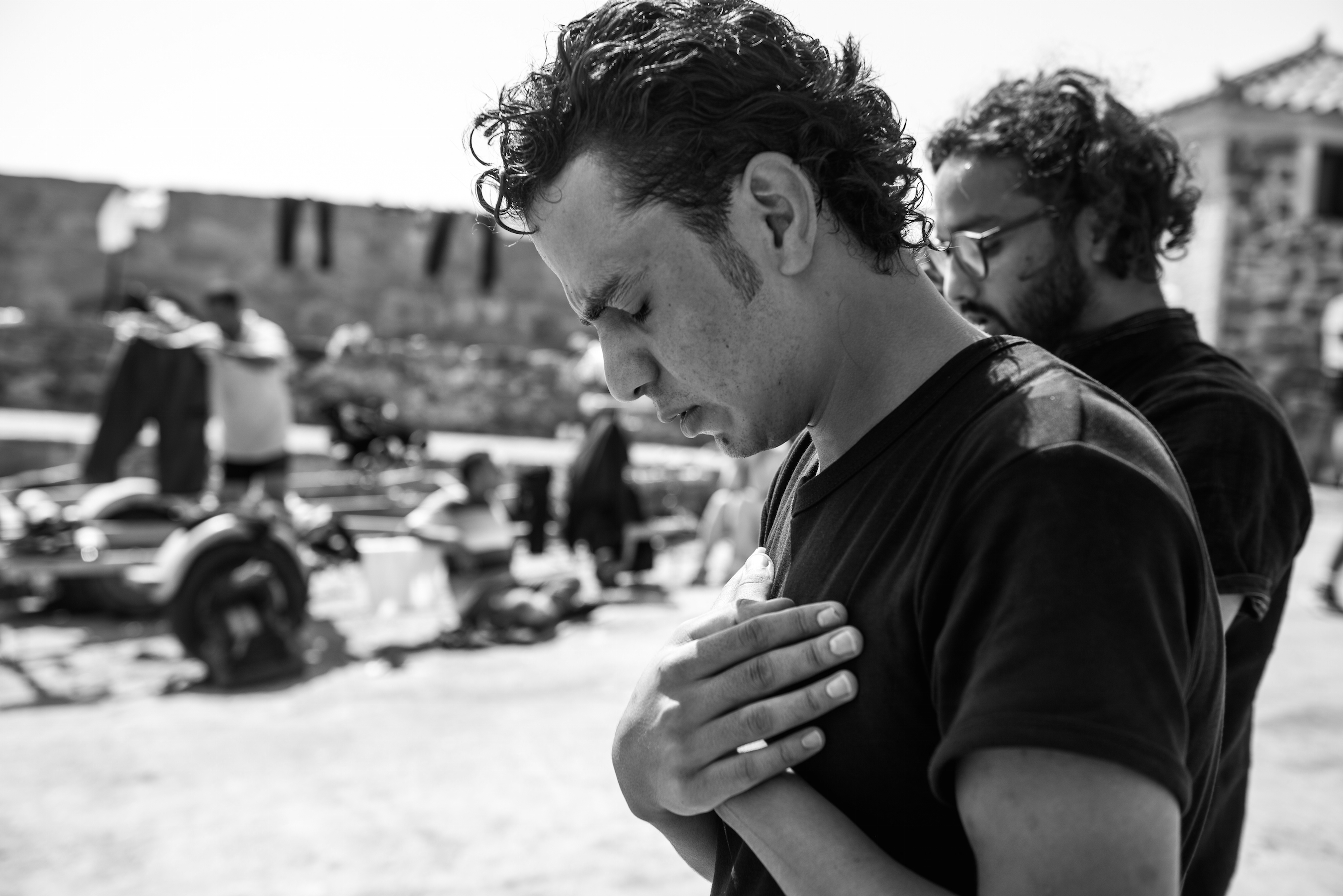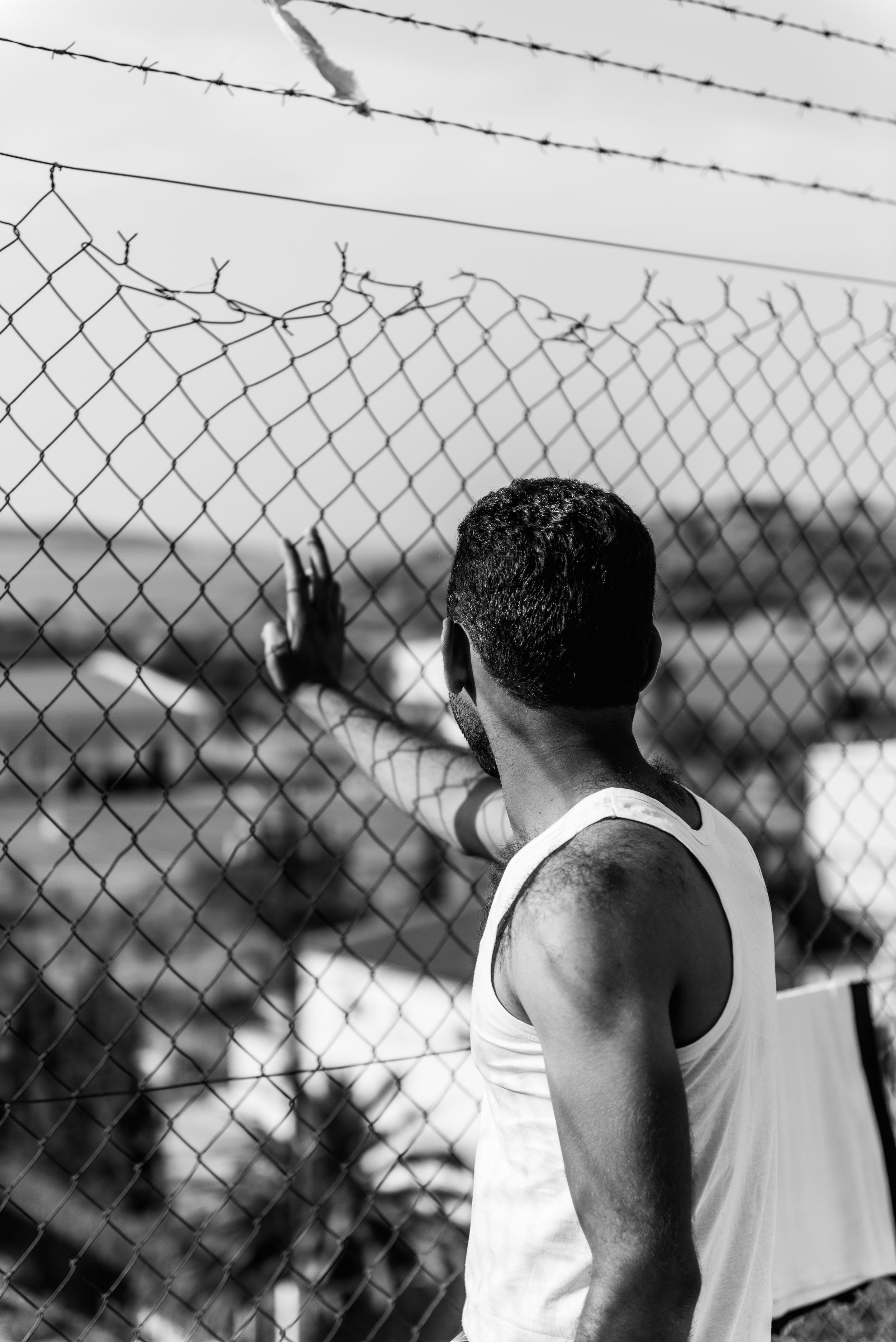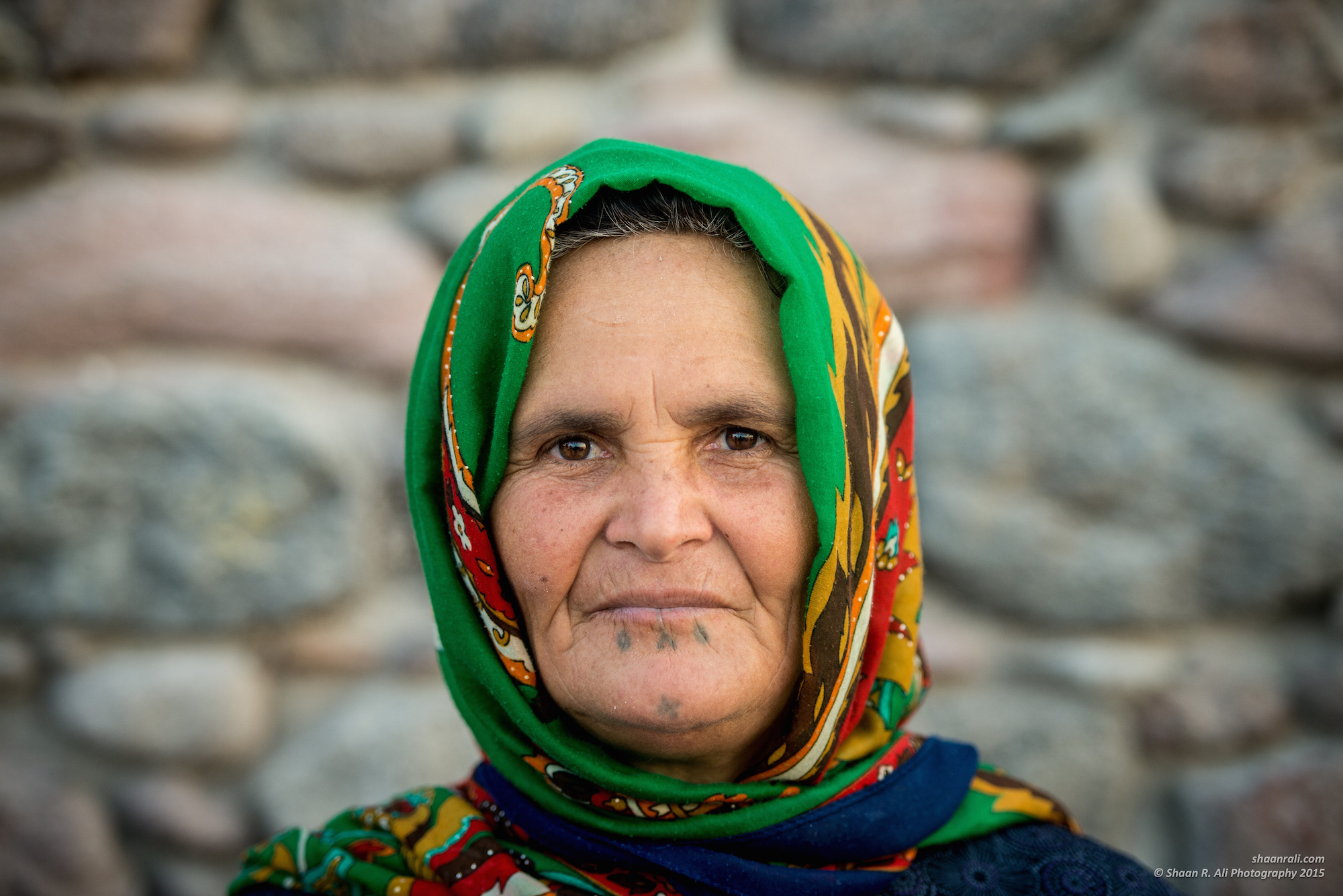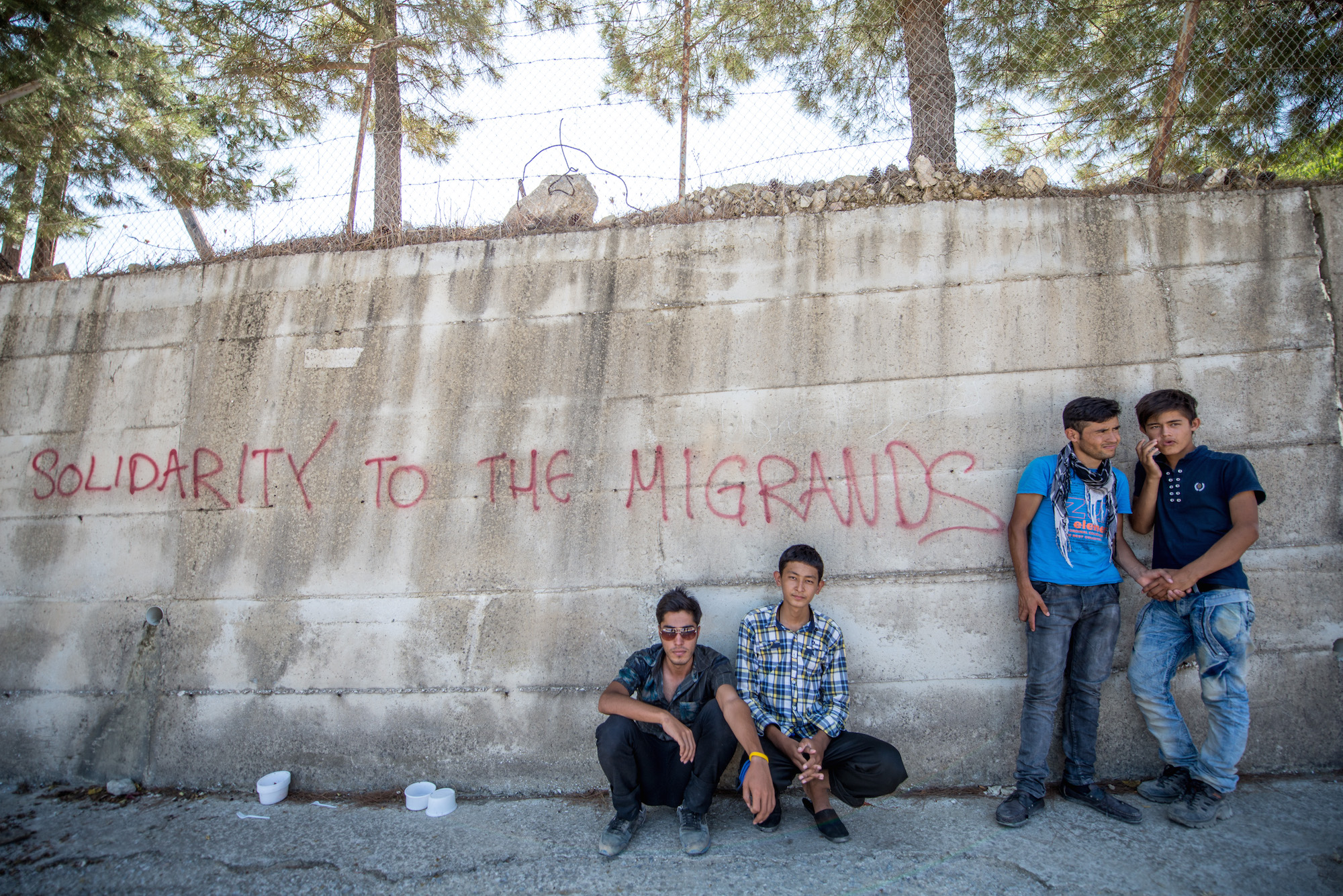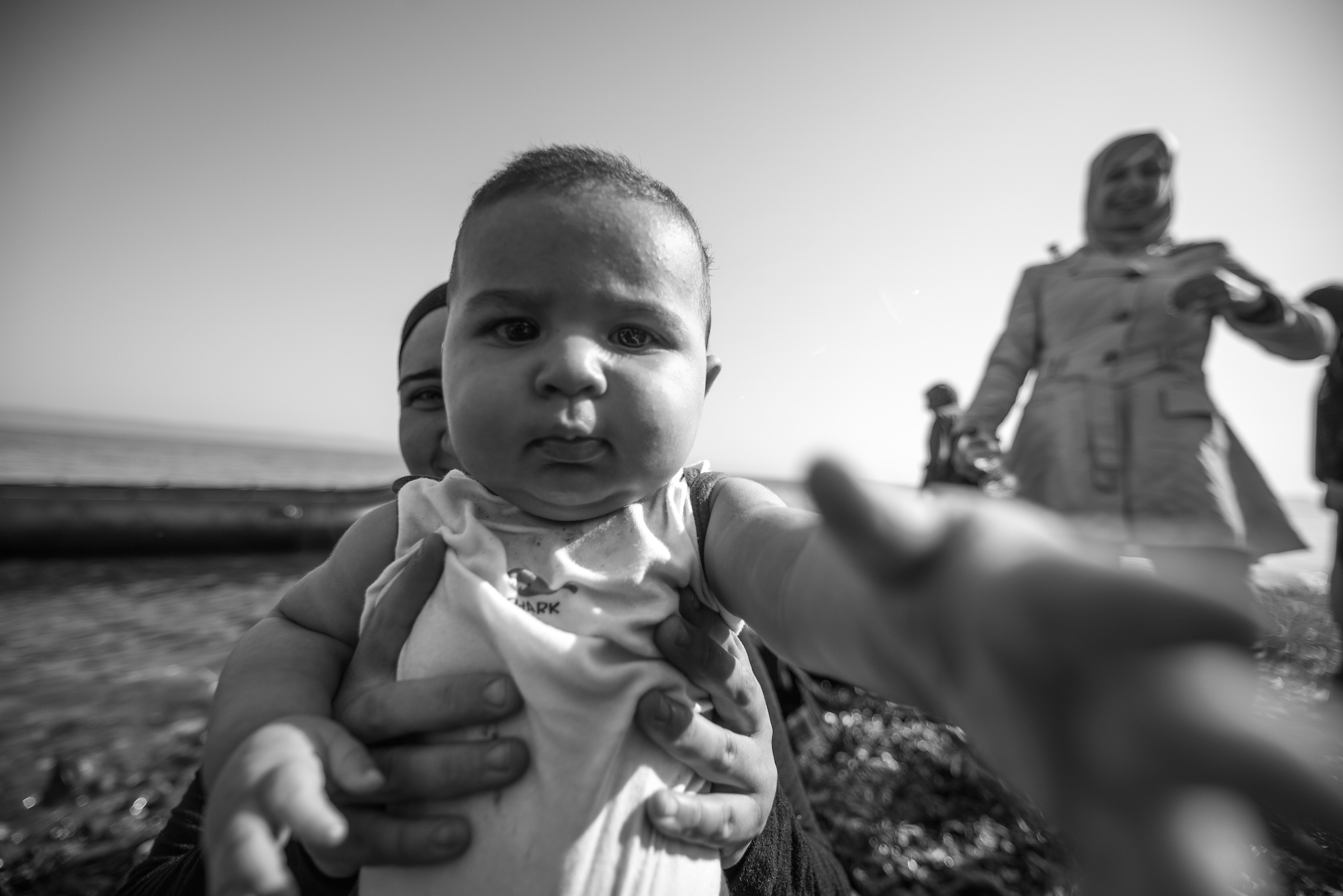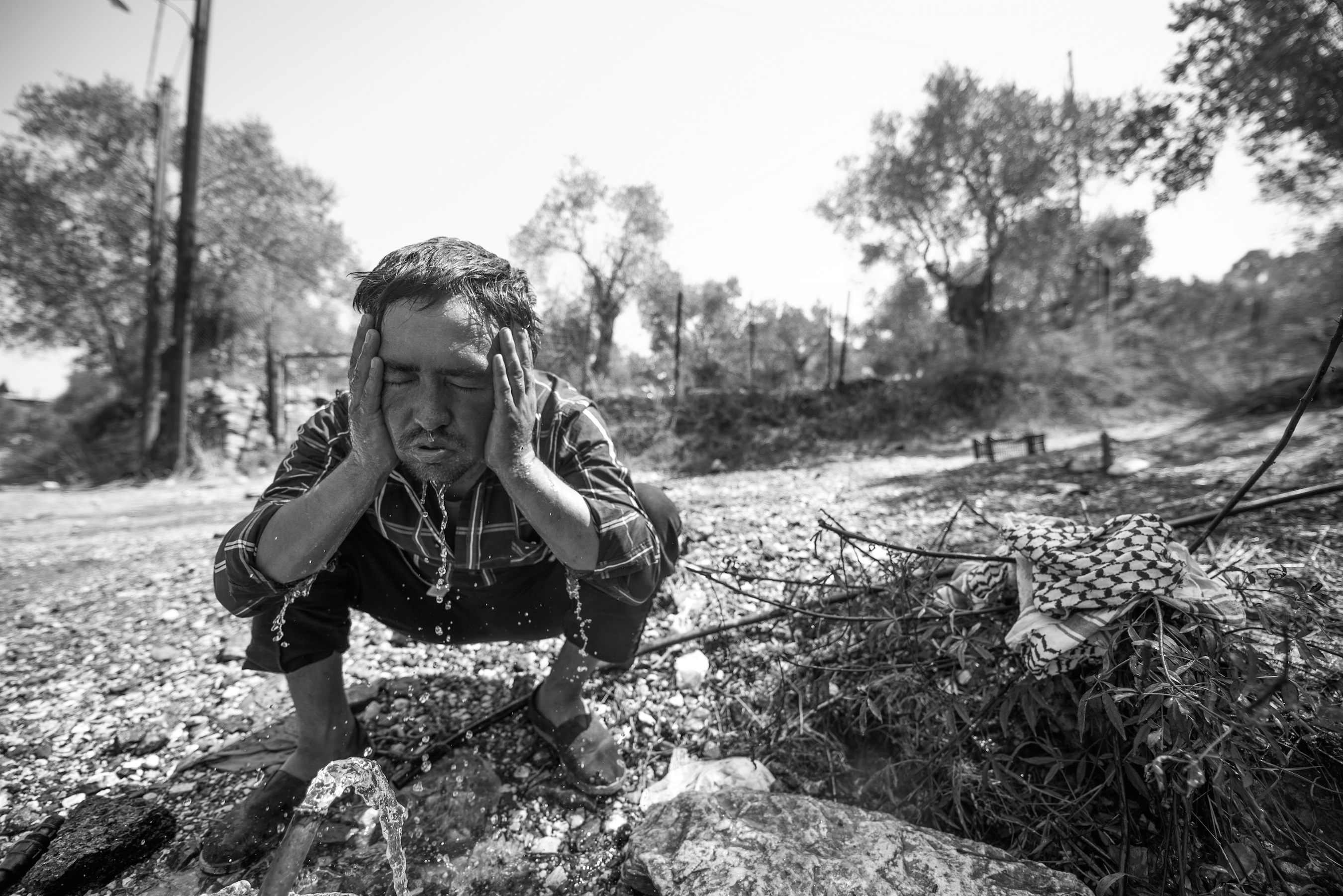The refugee boats keep coming, but we’re making a difference
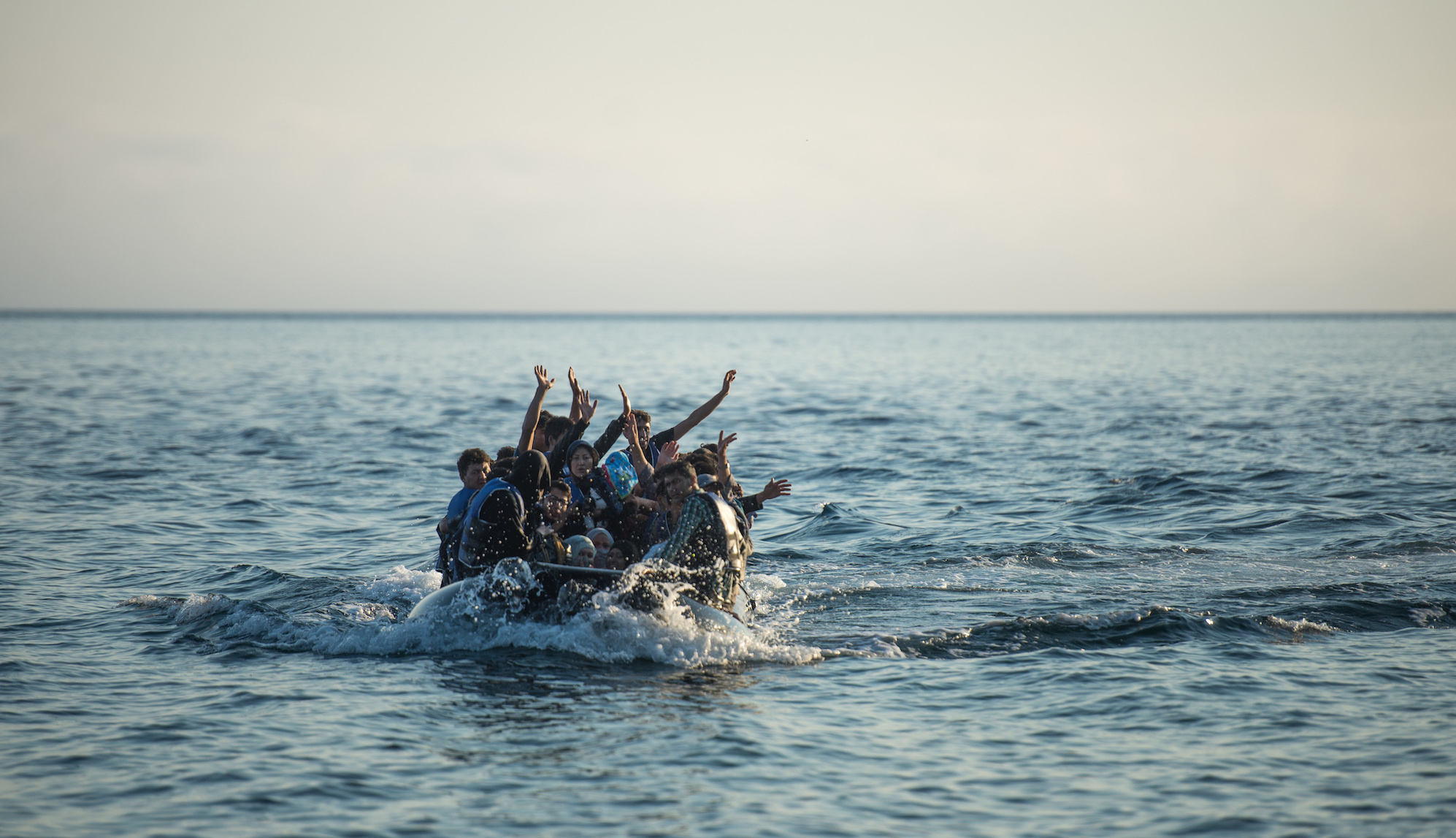
How a University of Melbourne Law student was moved by a harrowing image to help out on the frontline of Europe’s refugee crisis
Published 12 October 2015
Shaan Ali was studying International Law in one of Europe’s most cosmopolitan cities when he saw the harrowing picture that compelled him into action.
The final year Melbourne Law School student was struck by the image of a Syrian mother drowning as she held her baby above the water. He changed his holiday plans and flew to Lesbos, Greece, where boatloads of refugees continue to flee from conflict in Syria.
“I was travelling through Europe after finishing the Juris Doctor subject ‘Institutions in International Law’ in Geneva in July. I saw a photo of a Syrian mother drowning, while she held her baby above the water and I had no other option but to cancel my travel plans and come straight to Lesbos,” he said.

Mr Ali and Melinda McRostie, an Australian who has been working on the ground in Lesbos since the first boat arrived, set up the Starfish Foundation with others to provide aid to arriving refugees. They receive assistance from the United Nations Refugee Agency (UNHCR), IRC and the Red Cross.
No day is ever the same, Mr Ali says.
“Everyday changes rapidly. Sometimes we have 60 plus boats, and today we have so far only had three. We deal with each day as it comes. The Starfish Foundation has set up a temporary transit area, where buses are loaded and food is distributed,” he says.
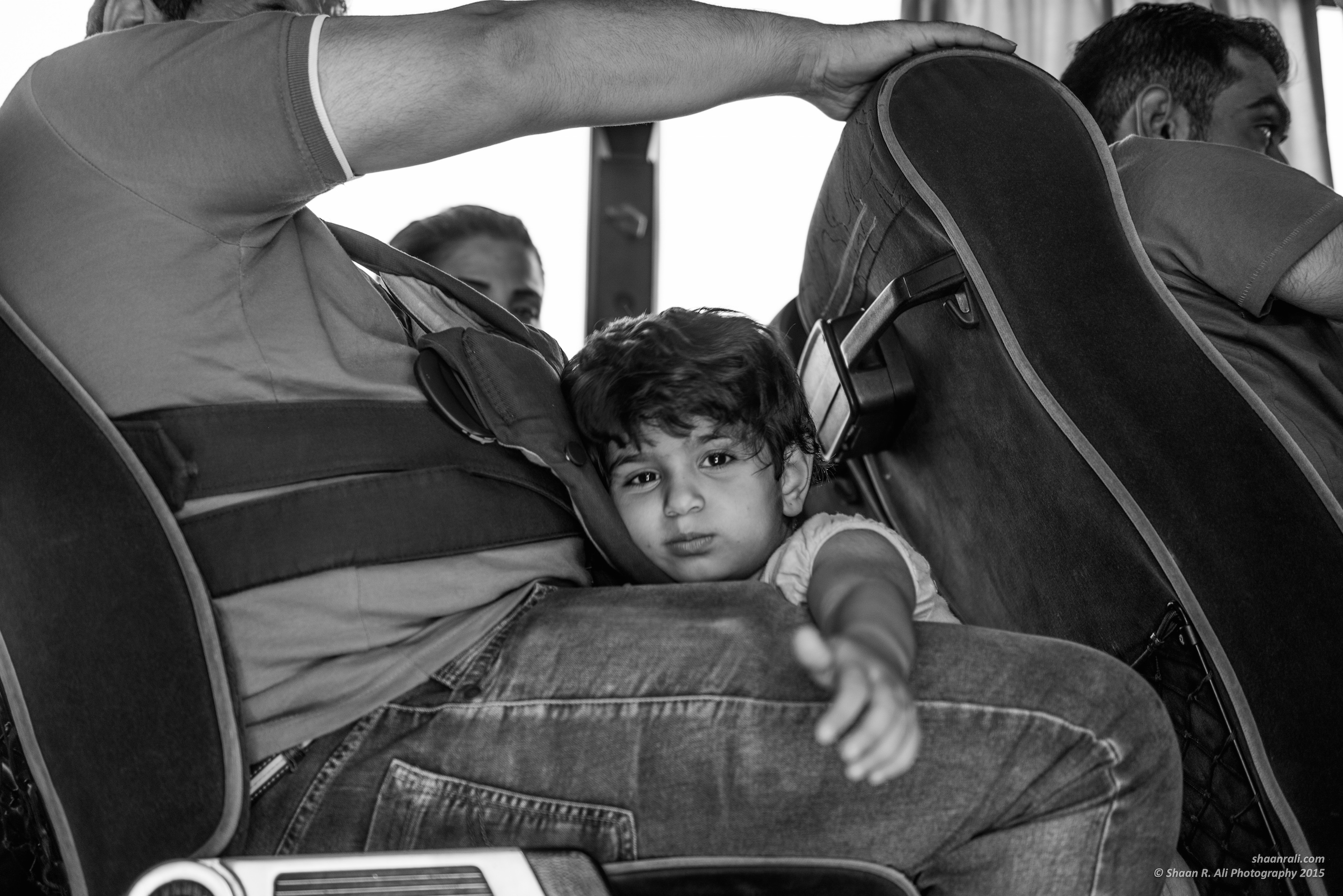
He also set up a Go Fund Me crowdsourcing campaign to raise funds to buy tents, food, clothing, sanitary equipment and other supplies needed by the refugees on arrival.
“I created the campaign as I knew that my friends and family back home would want to support the crisis and want to give, but may not have the channels within which they could contribute,” Mr Ali says.
He says the situation in Lesbos has been difficult and exhausting, but is redeemed by the newly arrived refugees’ strong hopes of building a new life. “We have many families with children, many elderly people. Many are sick, injured and carry serious war wounds. Shrapnel-covered refugees are more common than not.”
The level of trauma is evident in children that are numb to stimulus, with blank expressions and depleted energy levels. Many are optimistic about building a life free from violence and terror.
“Many have deep faith in the destiny of their path and a belief in God’s plan, however mysterious it might be.”
One of the biggest challenges has been providing enough medical care and supplies for the big volume of arrivals. However, Mr Ali says ”each day we get better and better at providing for those most in need”.
And still, he continues to be energised by the arriving refugees.
“The amount and depth of faith that refugees have is second to none …Many maintain a positive outlook and are hopeful that life will be better. The overarching emotion is exhaustion with a mixture of relief. Many have not eaten for three to four days when they arrive, and have not slept for even longer,” he says.
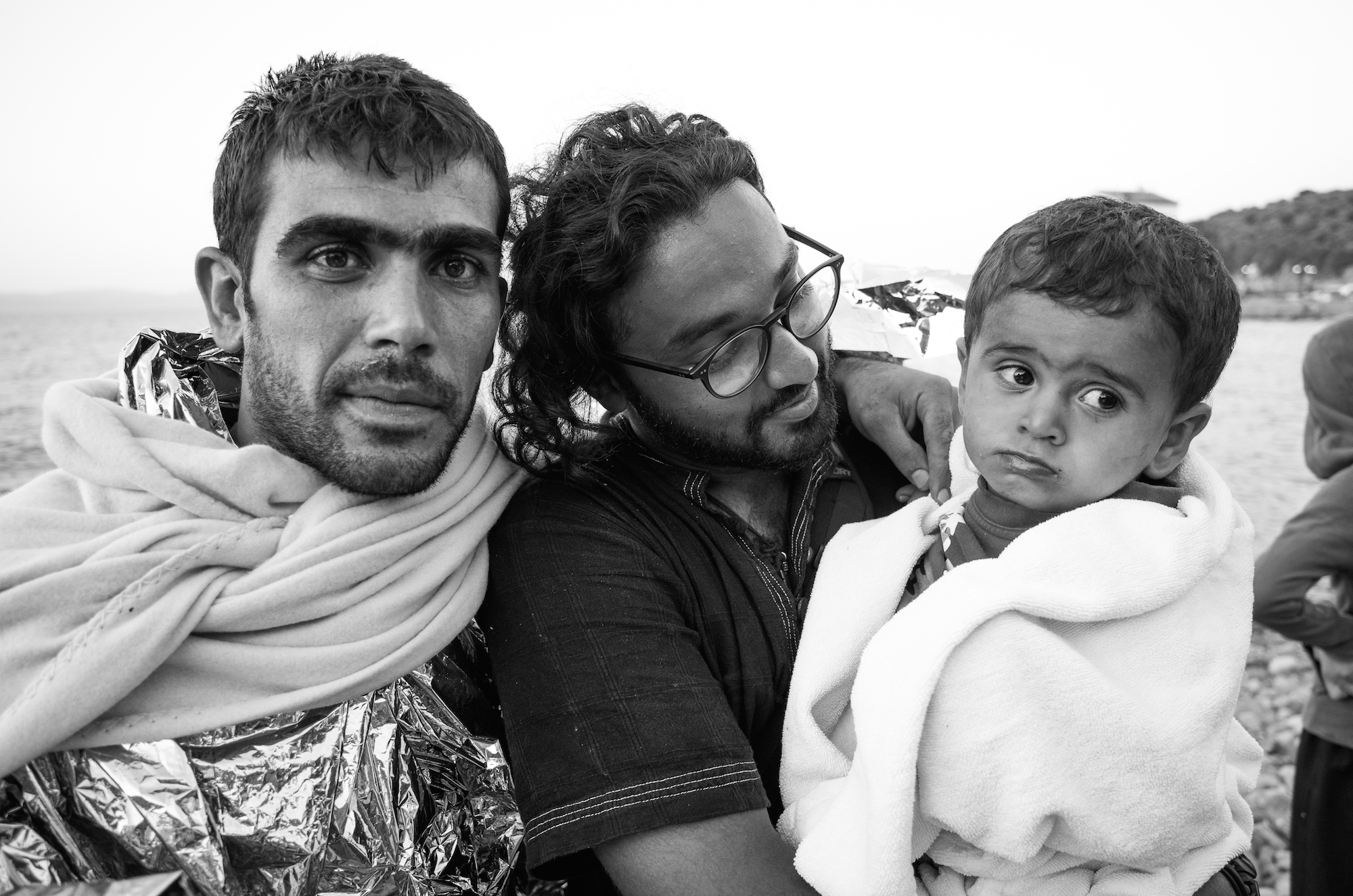
Intending to return to Melbourne soon, Mr Ali plans to continue photo-journalism in conjunction with work in emergency response. Eventually, he wants to work on the frontlines of conflict, be it in the Middle East, Africa or elsewhere.
While on Lesbos he kept a diary, some of which is excerpted here.
Update Day 1
Arrived as the sun rose and the heat began. Hired a car and drove straight to Mytilene from the airport. Drove past a small park, filled to the brim with Afghani refugees.
Walking through, already I sensed a resilience I was not expecting. Despite the harsh conditions, women smiled, children played in sprinklers as respite from the 35 degree direct heat, and men watched on.
I met a Syrian man named Ahmed, who was studying to be a mechanical engineer in Dara’a before ISIS came through and beheaded all of his friends. He fled to Turkey, but was caught and taken back to Syria. Upon return he was questioned by authorities and presumed to be smuggling Kalashnikovs from Turkey into Syria. He was beaten and starved, but managed to get out again and make his way to Lesbos. He leaves tomorrow for Athens.
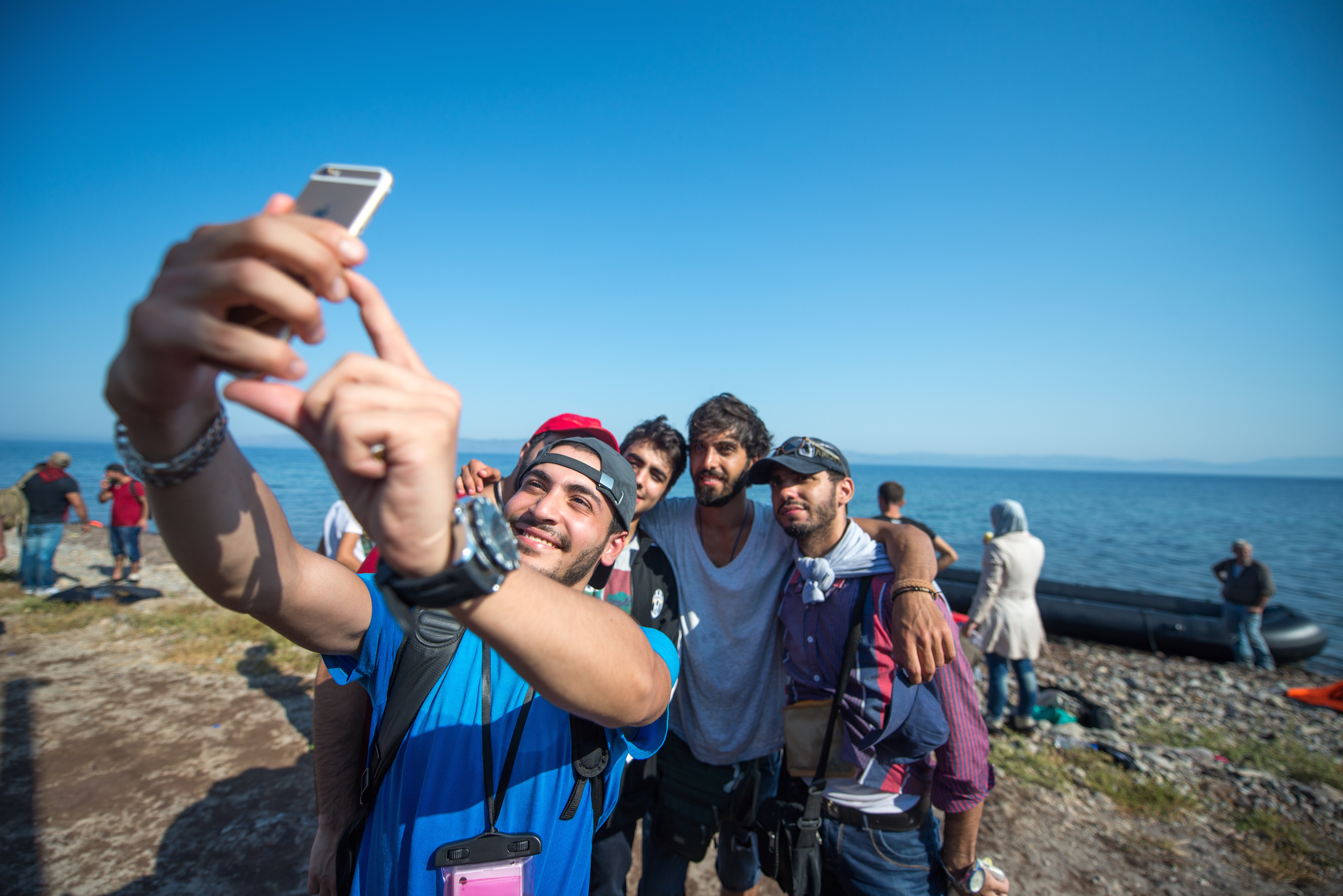
I met a group of young Hazara Afghani men and while talking to them, another rushed up speaking quickly in Farsi.
The translation: his mother was in incredible pain and needed to get to a hospital. She had fallen off a horse four days earlier in Turkey, as they climbed the rocky mountain ranges near the coast. The horse then fell upon her. The hospital was over 10km away.
I offered to drive her. I soon found out that the son had carried his mother for the remaining six hours on his back through the range before getting to Lesbos. I had to do what I could to get them some respite.
Getting out of the camp proved difficult, I was stopped by police who wanted to know what I was doing.
I knew that a woman had, weeks earlier, been arrested for “human trafficking” because she helped to drive refugees some parts of the 65km walk from Molyvos to Mytilene. I remained calm, let them shout down at me, and we were soon on our way.
After the hospital, and now quite familiar with my new Afghani brother, I co-opted him to help me distribute food. It was now late afternoon and if I was sensing the dehydration, I could only imagine what those without any water all day were going through.
Together, they helped me carry the 47 bananas, 36 apples, 36 pears, 150 packets of biscuits, four loaves of bread, 18 peaches and 42 bottles of water through the makeshift camp in the Mytilene park. All of these supplies only cost 154 Euro.
Update 2
Within the last 15 minutes, a boat has arrived in the Molyvos harbour in north Lesbos. It is now 12.50 am. Father and child were soaking wet after their boat capsized. They are now being processed by Customs and soon volunteers will be giving them more emergency blankets, water and dry clothes. Father and child are but two of a boatload of 44 refugees.
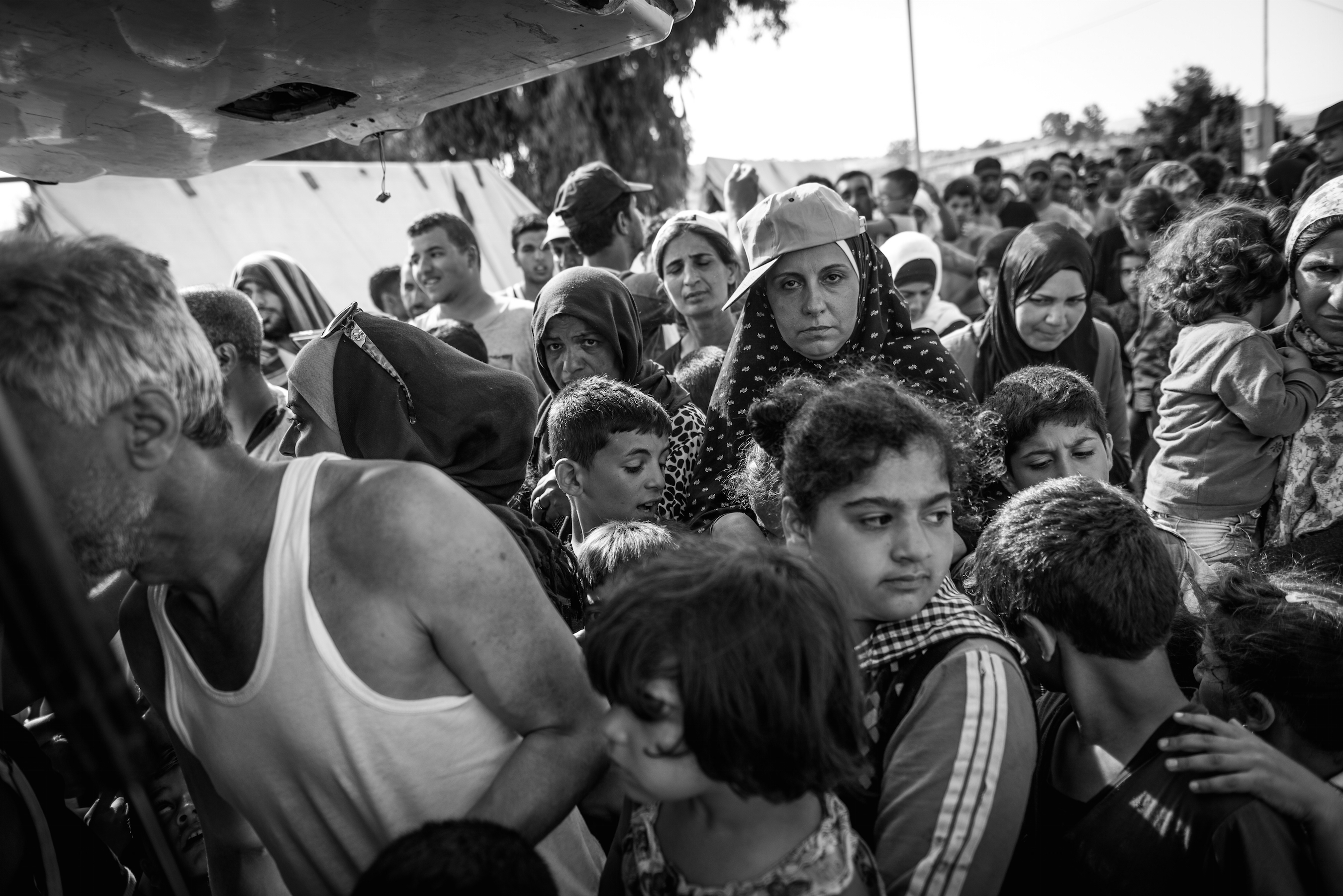
This boat is approximately the 22nd today, and the night is young. You do the maths ... (As I write another boat just arrived). The organisation and co-ordination of volunteers from all over the world (but mainly Denmark) has been breath-taking.
A local restaurant owner, Melinda (an Australian), has organised wholesale, bulk purchases of water, fruit, blankets and is co-ordinating international donations at a house in Molyvos.
Update 3 - 05 September
A boy is carried on the shoulders of an adult, holding a handwritten sign that reads in part:
Thank you but I don’t want stay here I want go.
I want freedom.
We are suffering here.
As tension escalates, the air in Mytilene is thick with cries of “Athena” and “We Want Go!”
UPDATE 4 - 10 September Today we moved 1, 220 people. People who arrived on Lesbos within the last 24 hours. We moved them by bus to Mytilene. This is a massive success. One week ago, these people were walking the 65km journey for processing and registration. And today we gave them just a little respite on their long journey. We worked 18 hours non-stop. Organising the sick, the women and children first, and then the men. We evolved our processes as we went. We aren’t professionals, but we did what we could. We all do what we can. And today, it felt like we moved mountains.
One week ago, everyone had to walk from here, and today we gave them a lift. We had 20 buses of which the International Rescue Committee paid for 12, UNHCR 7, and another by the local port police.
Today we moved 1, 220 people. Today we made one drop of difference in an ocean. But every great ocean is made up of but one drop.
Tomorrow, we will not do the same. Tomorrow, we will do more.
Update 5 - 17 September
Juxtaposition.
Light and dark. Sun and moon. Freezing cold and blisteringly hot. Sheer relief and utmost terror.
Last night the situation here escalated. We had over 60 boats arrive in one day. That’s approximately 3,600 people – just in north Lesbos. Last night many slept on the streets, wet and hungry.

We have been working buses nearly non-stop, but today reports are that the same number are arriving. Apparently the Turkish smugglers have slashed their prices because of closing borders across Europe.
But where there are shadows, there must also be light.
Banner image: 65 people loaded onto a raft built for 10 near the end of their journey from Turkey to Lesbos. Image credit: Shaan R Ali Photography / shaanrali.com
